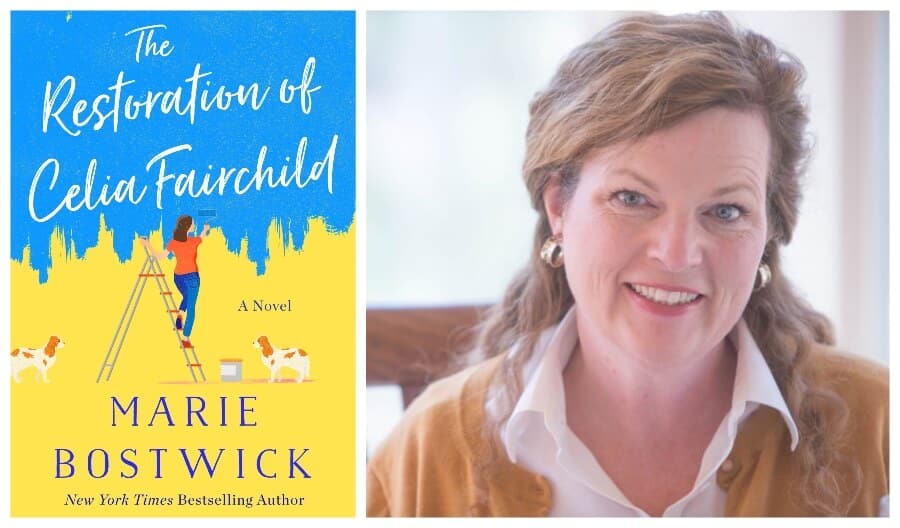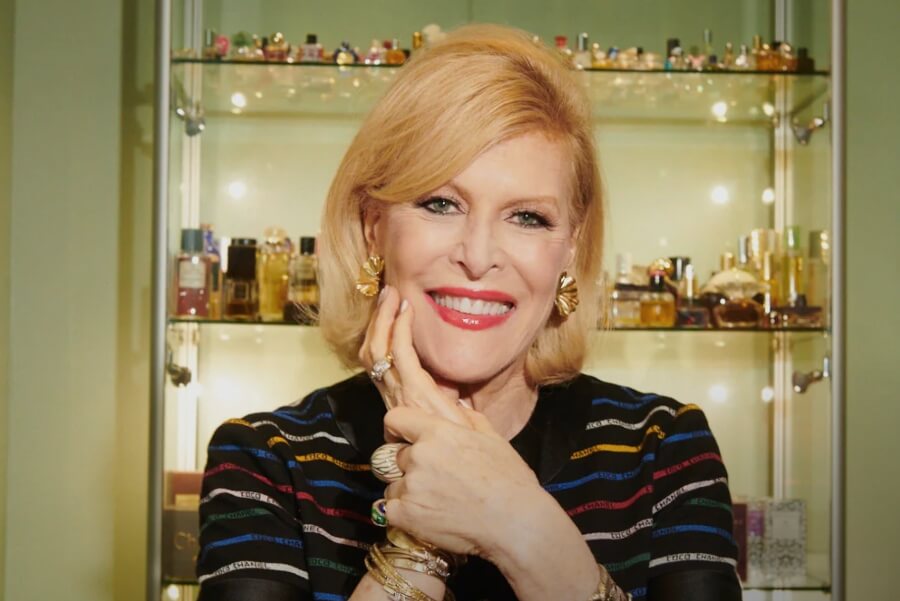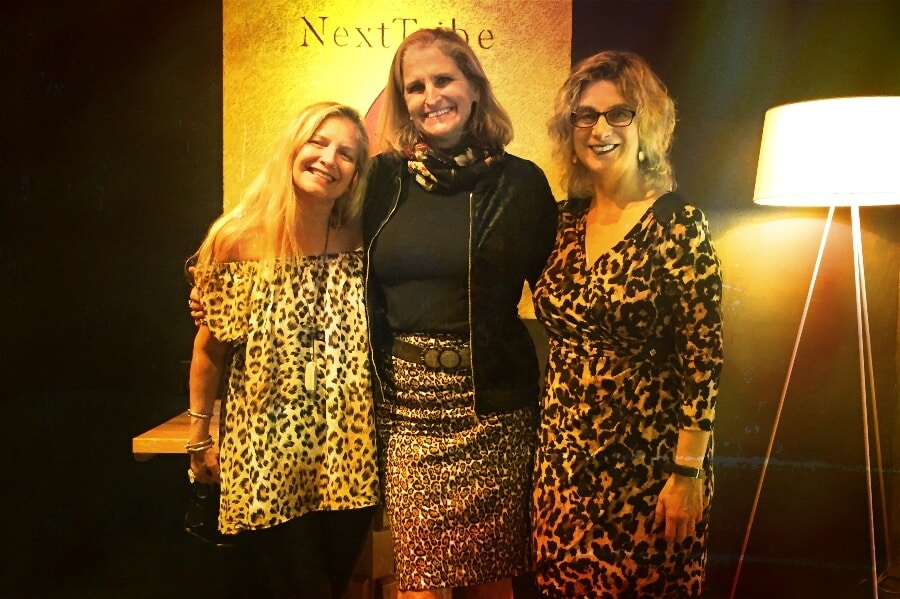You can’t always get what you want
But if you try sometime you find
You get what you need
We all know these lines as classic Rolling Stones lyrics, but they also sum up the theme of a new, wise and witty novel from Marie Bostwick. The Renovation of Celia Fairchild is funny, with whip-smart dialogue and a house transformation project suitable for HGTV. But more than that, it’s a book that reminds us that often what we long for is right in our own backyard (to borrow from The Wizard of Oz this time).
There’s laughter, romance, a lot of elbow grease in the house renovation project, and tons of wisdom about rebuilding a life.
Bostwick, the bestselling author of 18 novels, specializes in the kind of novels that are highly relatable and hugely insightful about women’s lives. Many of them deal with redemption, family ties, secrets, and tough choices, and Celia Fairchild is no exception.
The protagonist, Celia Fairchild, is an advice columnist who can figure out everyone else’s life but her own. At the start of the book, she’s coming off a divorce, and has plans to adopt a baby on her own, but getting laid off from her job complicates that dream. She ends up leaving New York City and returning to her hometown of Charleston, S.C. There’s laughter, romance, a lot of elbow grease in the house renovation project, and tons of wisdom about rebuilding a life.
Don’t expect a neat bow at the end, but expect to smile as you close the pages. I like stories that lead me to reflect on my own path and assumptions, and I love stories that make me laugh. Celia Fairchild does both beautifully.
I am happy that Bostwick, whose next book Esme Cahill Fails Spectacularly will be released by William Morrow in spring 2022, took the time to answer some questions.
Read More: Publishing a Debut Novel Later in Life: Here’s How One Woman Did It
You said in an Author’s Note that the novel tapped into your own experience. How did you mean that?
Though it’s unusual for me to do so, I modeled the character of Calvin on a real person—my best friend Mark. Calvin’s life circumstances are different than Mark’s, but the bond of friendship that he and Celia share, the ping-pong-paced humor that passes between them, and the cadence of the conversation are very similar to what I’ve known with Mark. That part of the story was easy to write. In fact, it was a joy.
I’ve come to believe that the failure to forgive—either yourself or others—is a huge impediment to becoming the best version of ourselves.
An area that tapped, sometimes uncomfortably so, into my own experience involved Celia’s relationship with her readers. Like Celia, I am very connected to the people who write to me. Usually they’re simply commenting on the book but sometimes they share quite personal glimpses into their lives, or ask for advice. I read and answer every note personally, and am honored that they feel comfortable confiding in me. But it can also feel like a big responsibility.
Celebrity, I have found, even when you’re a celebrity as minor as myself, can sometimes give you that sensation that you’re walking around in brand new shoes—something uncomfortable and a little stiff, that could put you at risk of tripping and falling.
Also, my father died during the writing of this book. Though my dad was nothing like Celia’s, we both, Celia and I, had complicated relationships with and feelings for our fathers. Writing Celia’s story forced me to take a closer look at that, inserting some of my own emotions into her story. But, in the end, it also provided me a sense of closure that I very much needed.
What are you hoping readers will take away from the book?
More than anything, I always hope that readers will be entertained by my books. Life is complicated and sometimes discouraging, so providing readers with a story to take them from their troubles, if only for a few hours, is no small thing.
However, I also hope that people will think in a clear-eyed way about the emotional baggage they might be carrying around with them, and how the weight of it might be holding them back. In my life, I’ve come to believe that the failure to forgive—either yourself or others—is a huge impediment to becoming the best version of ourselves.
Celia Fairchild is in her 30s, but what messages do you think will most appeal to an older audience?
Celia is trying to adopt a baby, but what she really wants is a family. I think that kind of genuine connection is something that we all need and can relate to, no matter our stage of life.
How do you define family?
It may be about blood ties but it doesn’t have to be. As Celia says in the book, “Being well known to a lot of people who admire the person they think you are, the role you play, isn’t the same as being important to a few people who know you and love you anyway…That’s what family is: the people who love you anyway.”
That’s my definition of family too; they’re the people who love you anyway.
What is your connection to Charleston?
Sadly, even with all my moves and many addresses, I haven’t lived in Charleston. But if I ever win the lottery, there’s a carriage house on Tradd Street that’s got my name on it.
However, I did live in Georgia at one point, and have visited Charleston many, many times over years. I’ve wanted to set a book there for a long time. How could I not? I think it’s just about the most beautiful city in America.
Tell us about your blog “Fiercely Marie” and why you started it?
Originally, the blog was called “Fierce Beyond 50,” so that’s a big clue as to the motivation behind it. When I turned 50, it suddenly felt like people were telling me to get off the stage, that my opinions and experience were no longer relevant or needed, thank you very much. I begged to differ.
Having more years under my belt meant that I had more to offer, not less.
Having more years under my belt meant that I had more to offer, not less. I began writing the blog as a means of sharing with my sister-over-fifties. And while a lot of my posts are about cooking, or crafting, or others of my favorite pastimes, many are centered on deeper topics, such as how to be a good in-law, or set goals, or reinvent yourself after a job loss.
The blog took off pretty quickly. But after a few months, I started to realize that a big portion of my audience was composed of people under fifty. That’s when I decided to change the name to “Fiercely Marie.” At the end of day, most of us are striving for the same thing—to live well in every moment of life.
Fierceness, I have learned, doesn’t have an age limit.
Read More: A New Susan Meissner Novel Reminds Us of Life’s Fragility and Our Own Resilience





















0 Comments